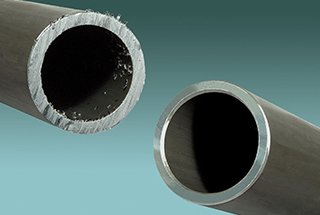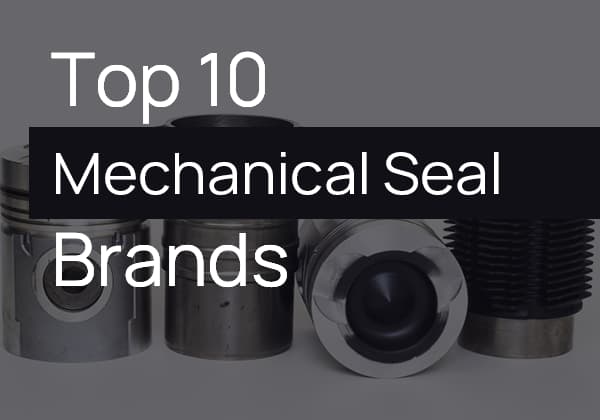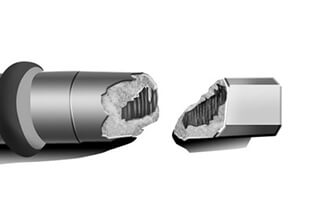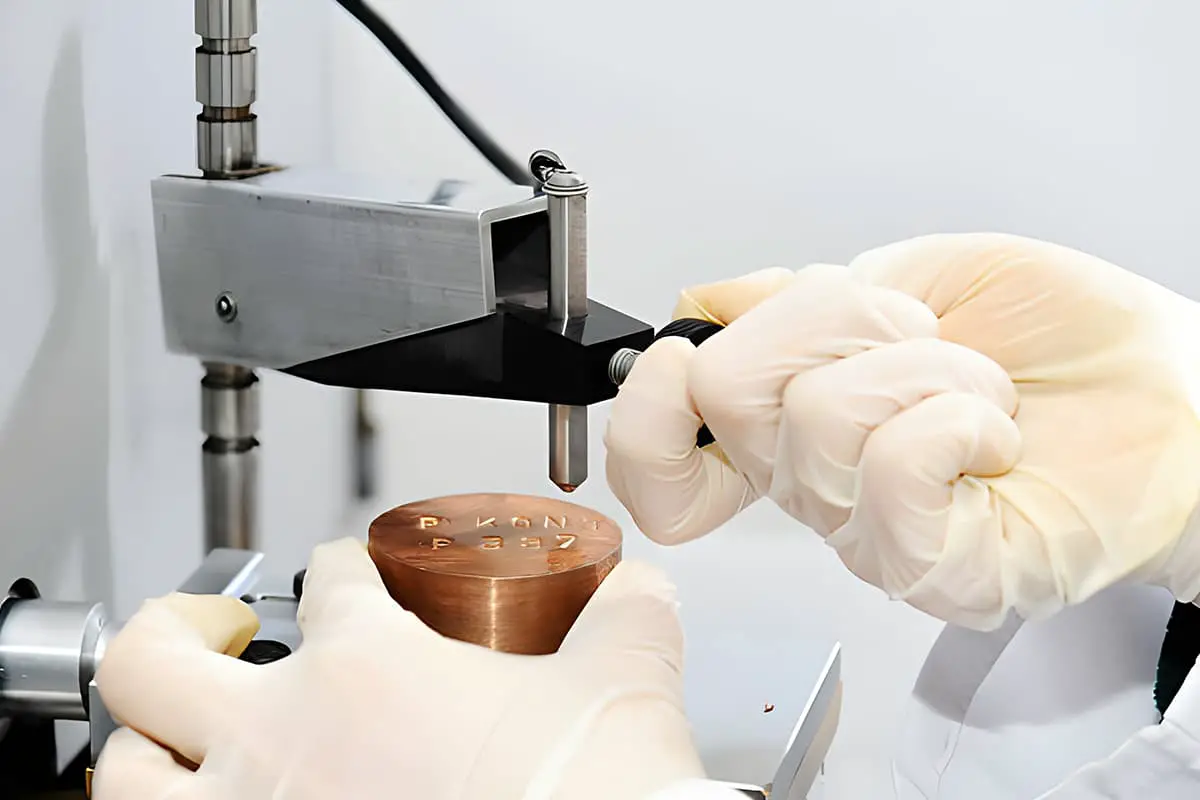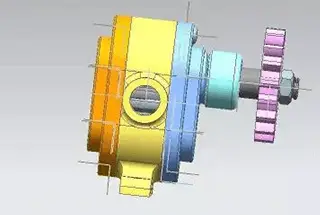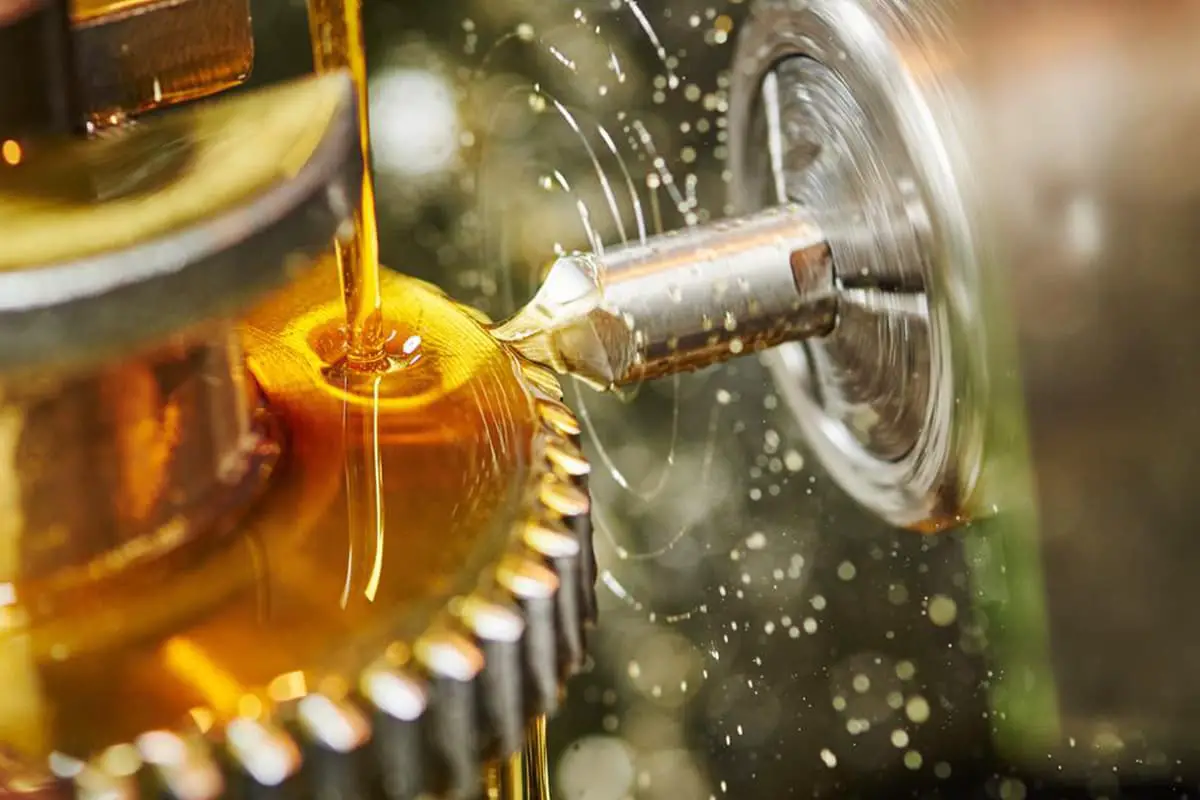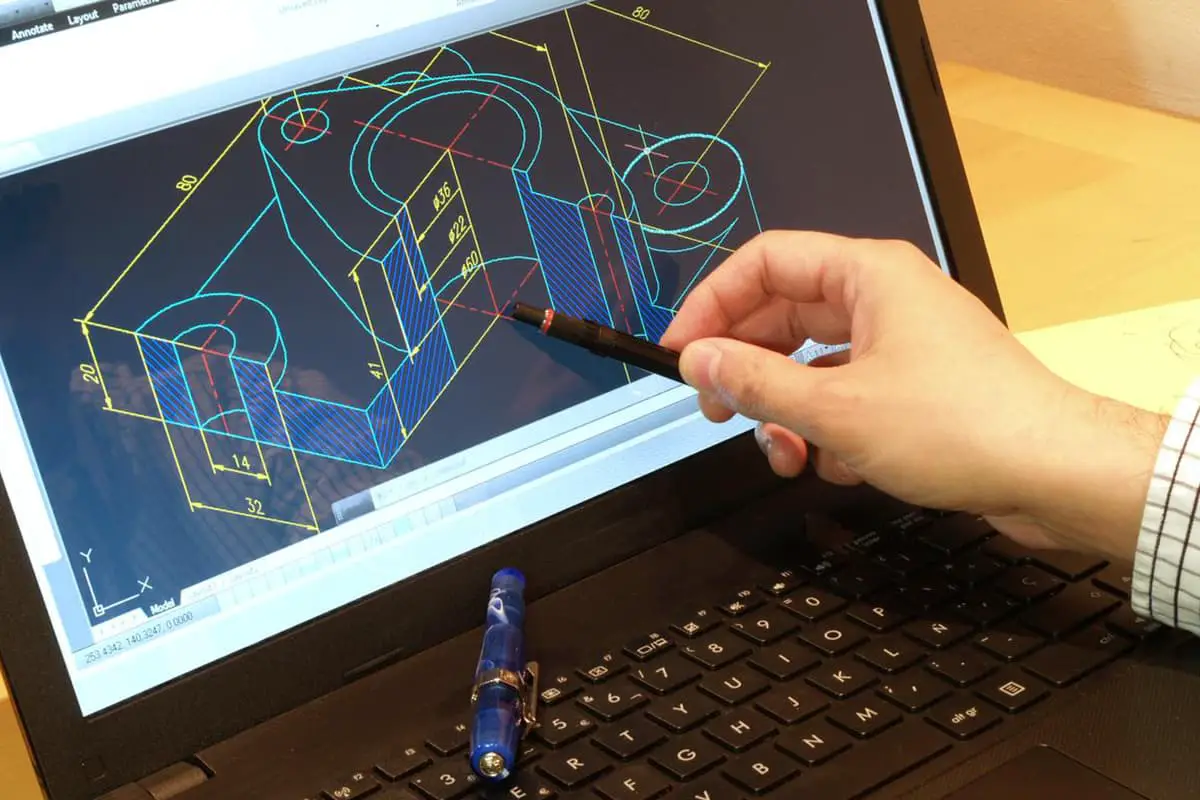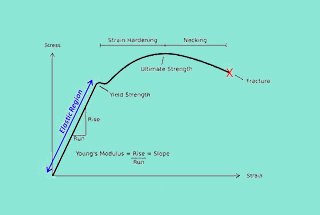
Have you ever wondered about the mechanical properties of different metals? In this article, we dive deep into the shear strength, tensile strength, and other key characteristics of various ferrous and non-ferrous metals. Gain insights from experienced engineers and metallurgists to expand your knowledge and make more informed decisions when selecting metals for your projects.
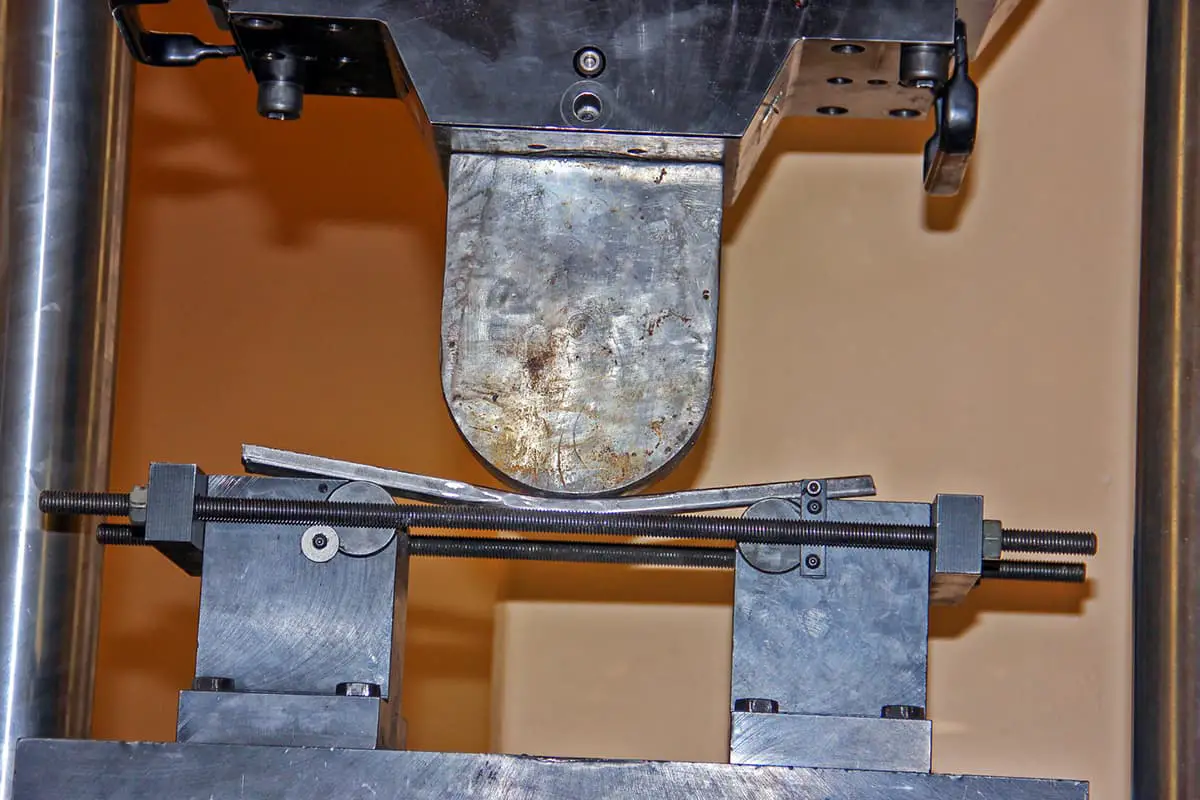
To cater to the requirements of our readers, we have developed a table of mechanical properties for a range of ferrous and non-ferrous metals.
Related reading: Ferrous vs Non-ferrous Metals

| Material | Grade | Material Status | Shear Strength τ (MPa) | Tensile Strength σb (MPa) | Elongation σs (%) | Yield Strength δ (MPa) | Elastic Modulus Е (MPa) |
|---|---|---|---|---|---|---|---|
| Industrial pure iron for electricians C>0.025 | DT1 DT2 DT3 | annealed | 180 | 230 | 26 | — | |
| Electrical Silicon Steel | D11 D12 D21 D31 D32 D370 D310~340 S41~48 | annealed | 190 | 230 | 26 | — | |
| Ordinary carbon steel | Q195 | unannealed | 260~320 | 315~390 | 28~33 | 195 | |
| Q215 | 270~340 | 335~410 | 26~31 | 215 | |||
| Q235 | 310~380 | 375~460 | 21~26 | 235 | |||
| Q255 | 340~420 | 410~510 | 19~24 | 255 | |||
| Q275 | 400~500 | 490~610 | 15~20 | 275 | |||
| Carbon tool steel | 08F | annealed | 220~310 | 280~390 | 32 | 180 | |
| 10F | 260~360 | 330~450 | 32 | 200 | 190000 | ||
| 15F | 220~340 | 280~420 | 30 | 190 | |||
| 08 | 260~340 | 300~440 | 29 | 210 | 198000 | ||
| 10 | 250~370 | 320~460 | 28 | — | |||
| 15 | 270~380 | 340~480 | 26 | 280 | 202000 | ||
| 20 | — | 280~400 | 360~510 | 35 | 250 | 21000 | |
| 25 | 320~440 | 400~550 | 34 | 280 | 202000 | ||
| 30 | 360~480 | 450~600 | 22 | 300 | 201000 | ||
| 35 | 400~520 | 500~650 | 20 | 320 | 201000 | ||
| 40 | 420~540 | 520~670 | 18 | 340 | 213500 | ||
| 45 | 440~560 | 550~700 | 16 | 360 | 204000 | ||
| 50 | normalized | 440~580 | 550~730 | 14 | 380 | 220000 | |
| 55 | 550 | ≥670 | 43 | 390 | — | ||
| 60 | 550 | ≥700 | 12 | 410 | 208000 | ||
| 65 | 600 | ≥730 | 10 | 420 | — | ||
| 70 | 600 | ≥760 | 9 | 430 | 210000 | ||
| T7~T12 T7A~T12A | annealed | 600 | 750 | 10 | — | — | |
| T8A | cold hardened | 600~950 | 750~1200 | — | — | — | |
| High-quality carbon steel | 10Mn | annealed | 320~460 | 400~580 | 22 | 230 | 211000 |
| 65Mn | 600 | 750 | 12 | 400 | 21000 | ||
| Alloy structural steel | 25CrMnSiA 25CrMnSi | low-temperature annealed | 400~560 | 500~700 | 18 | 950 | — |
| 30CrMnSiA 30CrMnSi | 440~600 | 550~750 | 16 | 1450 850 | — | ||
| Quality spring steel | 60Si2Mn 60Si2MnA 65SiWA | low-temperature annealed | 720 | 900 | 10 | 1200 | 200000 |
| cold hardened | 640~960 | 800~1200 | 10 | 1400 1600 | — | ||
| Stainless steel | 1Cr13 | annealed | 320~380 | 400~470 | 21 | 420 | 210000 |
| 2Cr13 | 320~400 | 400~500 | 20 | 450 | 210000 | ||
| 3Cr13 | 400~480 | 500~600 | 18 | 480 | 210000 | ||
| 4Cr13 | 400~480 | 500~600 | 15 | 500 | 210000 | ||
| 1Cr18Ni19 2Cr18Ni19 | heat-treated | 460~520 | 580~640 | 35 | 200 | 200000 | |
| rolled, cold-hardened | 800~880 | 1000~1100 | 38 | 220 | 200000 | ||
| 1Cr18Ni9Ti | Heat-treated softened | 430~550 | 540~700 | 40 | 200 | 200000 |
| Steel Grade | Heating temperature ℃ | |||||
|---|---|---|---|---|---|---|
| 200 | 500 | 600 | 700 | 800 | 900 | |
| Q195, Q215, 08, 15 | 360 | 320 | 200 | 110 | 60 | 30 |
| Q235, Q255, 20, 25 | 450 | 450 | 240 | 130 | 90 | 60 |
| Q275, 30, 35 | 530 | 520 | 330 | 160 | 90 | 70 |
| 40, 45, 50 | 600 | 580 | 380 | 190 | 90 | 70 |
Note: When determining the shear strength of a material, it is important to take into account the stamping temperature, which is typically 150~200℃ lower than the heating temperature.
| Material | Grade | Material Status | Shear Strength τ (MPa) | Tensile Strength σb (MPa) | Elongation σs (%) | Yield Strength δ (MPa) | Elastic Modulus Е (MPa) |
|---|---|---|---|---|---|---|---|
| Aluminum | 1070A 1050A 1200 | Annealed | 80 | 75~110 | 25 | 50~80 | 72000 |
| Cold hardened | 100 | 120~150 | 4 | 120~240 | |||
| Aluminum manganese alloys | 3A21 | Annealed | 70~100 | 110~145 | 19 | 50 | 71000 |
| Semi-cold hardened | 100~140 | 155~200 | 13 | 130 | |||
| Aluminum-magnesium alloy Aluminum-magnesium-copper alloy | SA02 | Annealed | 130~160 | 180~230 | — | 100 | 70000 |
| Semi-cold hardened | 160~200 | 230~280 | 210 | ||||
| High strength aluminum-magnesium-copper alloy | 7A04 | Annealed | 170 | 250 | — | — | — |
| Hardened and artificially aged | 350 | 500 | 460 | 70000 | |||
| Magnesium-manganese alloy | MB1 MB8 | Annealed | 120~140 | 170~190 | 3~5 | 98 | 43600 |
| Annealed | 170~190 | 220~230 | 12~24 | 140 | 40000 | ||
| Cold hardened | 190~200 | 240~250 | 8~10 | 160 | |||
| Rigid aluminum | 2Al12 | Annealed | 105~150 | 150~215 | 12 | — | — |
| Hardened with natural aging | 280~310 | 400~440 | 15 | 368 | 72000 | ||
| Cold hardened after hardening | 280~320 | 400~460 | 10 | 340 | |||
| Pure copper | T1 T2 T3 | Soft | 160 | 200 | 30 | 70 | 108000 |
| Hard | 240 | 300 | 3 | 380 | 130000 | ||
| Brass | H62 | Soft | 260 | 300 | 35 | 380 | 100000 |
| Semi-hard | 300 | 380 | 20 | 200 | — | ||
| Hard | 420 | 420 | 10 | 480 | — | ||
| Brass | H68 | Soft | 240 | 300 | 40 | 100 | 110000 |
| Semi-hard | 280 | 350 | 25 | — | |||
| Hard | 400 | 400 | 15 | 250 | 115000 | ||
| Lead brass | HPb59-1 | Soft | 300 | 350 | 25 | 142 | 93000 |
| Hard | 400 | 450 | 5 | 420 | 105000 | ||
| Manganese brass | HMn58-2 | Soft | 340 | 390 | 25 | 170 | 100000 |
| Semi-hard | 400 | 450 | 15 | — | |||
| Hard | 520 | 600 | 5 | ||||
| Tin-phosphorus bronze Tin-Zinc-Bronze | QSn4-4-2.5 QSn4-3 | Soft | 260 | 300 | 38 | 140 | 100000 |
| Hard | 480 | 550 | 3~5 | ||||
| Extra-hard | 500 | 650 | 1~2 | 546 | 124000 | ||
| Aluminum bronze | QAl17 | Annealed | 520 | 600 | 10 | 186 | — |
| Un-annealed | 560 | 650 | 5 | 250 | 115000~130000 | ||
| Aluminum manganese bronze | QAl9-2 | Soft | 360 | 450 | 18 | 300 | 92000 |
| Hard | 480 | 600 | 5 | 500 | — | ||
| Silicon-manganese bronze | QBi3-1 | Soft | 280~300 | 350~380 | 40~45 | 239 | 120000 |
| Hard | 480~520 | 600~650 | 3~5 | 540 | — | ||
| Extra-hard | 560~600 | 700~750 | 1~2 | — | — | ||
| Beryllium bronze | QBe2 | Soft | 240~480 | 300~600 | 30 | 250~350 | 117000 |
| Hard | 520 | 660 | 2 | 1280 | 132000~141000 | ||
| Cupro-nickel | B19 | Soft | 240 | 300 | 25 | — | — |
| Hard | 360 | 450 | 3 | ||||
| Nickel silver | BZn15-20 | Soft | 280 | 350 | 35 | 207 | — |
| Hard | 400 | 550 | 1 | 486 | 126000~140000 | ||
| Extra-hard | 520 | 650 | — | ||||
| Nickel | Ni-3~Ni-5 | Soft | 350 | 400 | 35 | 70 | — |
| Hard | 470 | 550 | 2 | 210 | 210000~230000 | ||
| German silver | BZn15-20 | Soft | 300 | 350 | 35 | — | — |
| Hard | 480 | 550 | 1 | ||||
| Extra-hard | 560 | 650 | 1 | ||||
| Zinc | Zn-3~Zn-6 | — | 120~200 | 140~230 | 40 | 75 | 80000~130000 |
| Lead | Pb-3~Pb-6 | — | 20~30 | 25~40 | 40~50 | 5~10 | 15000~17000 |
| Tin | Sn1~Sn4 | — | 30~40 | 40~50 | — | 12 | 41500~55000 |
| Titanium alloy | TA2 | Annealed | 360~480 | 450~600 | 25~30 | — | — |
| TA3 | 440~600 | 550~750 | 20~25 | ||||
| TA5 | 640~680 | 800~850 | 15 | 800~900 | 104000 | ||
| Magnesium alloy | MB1 | Cold state | 120~140 | 170~190 | 3~5 | 120 | 40000 |
| MB8 | 150~180 | 230~240 | 14~15 | 220 | 41000 | ||
| MB1 | Preheat 300°C | 30~50 | 30~50 | 50~52 | — | 40000 | |
| MB8 | 50~70 | 50~70 | 58~62 | — | 41000 | ||
| Silver | — | — | — | 180 | 50 | 30 | 81000 |
| Fungible alloy | Ni29Co18 | — | 400~500 | 500~600 | — | — | — |
| Copper constantan | BMn40-1.5 | Soft | — | 400~600 | — | — | — |
| Hard | — | 650 | — | — | — | ||
| Tungsten | — | Annealed | — | 720 | 0 | 700 | 312000 |
| Un-annealed | — | 1491 | 1~4 | 800 | 380000 | ||
| Molybdenum | — | Annealed | 20~30 | 1400 | 20~25 | 385 | 280000 |
| Un-annealed | 32~34 | 1600 | 2~5 | 595 | 300000 |
Here is the shear strength information for various metals:
Continuing with the shear strength information for Non-ferrous Metals as listed in the “Metal Mechanical Properties Chart” on MachineMfg.com:
This comprehensive list covers a wide range of metals, providing essential information for applications where shear strength is a critical factor. This information is crucial for engineers and designers in selecting the appropriate materials for various applications based on shear strength requirements.
The international standards for steel shear strength testing encompass the ASTM and ISO series. In the United States, there are multiple ASTM standards used for measuring shear strength, including ASTMB831, D732, D4255, D5379, and D7078. Internationally, ISO shear strength testing standards include ISO3597, 12579, and 14130. Additionally, there is the ISO 10123 standard, which is specific to steel.
Therefore, the primary international standards for steel shear strength testing are the relevant ones within the ASTM and ISO series.
The differences in shear strength between 45# steel and Q235 steel in practical applications and their causes mainly reflect in their chemical compositions, mechanical properties, and applicable scenarios.
Firstly, in terms of chemical composition, Q235 steel is a low-carbon steel, with its carbon content around 0.2%, while 45# steel is a medium-carbon steel, with a carbon content of approximately 0.45%. These differences in chemical composition lead to variations in the performance of the two types of steel.
Secondly, regarding mechanical properties, the yield strength of Q235 steel is about 235MPa, whereas that of 45# steel is higher, reaching up to 355MPa. This indicates that 45# steel has a stronger ability to resist minor plastic deformation, meaning it has higher strength and hardness. Moreover, the permissible shear stress of Q235 steel is 98MPa, while the shear strength range of Q235 material is from 141 to 188 MPa, further demonstrating the relatively weaker shear performance of Q235 steel.
Finally, since 45# steel can enhance its strength and hardness after heat treatment through quenching, it is more suitable for scenarios requiring high load-bearing and good wear resistance, such as manufacturing mechanical parts. In contrast, due to its higher plasticity and lower strength, Q235 steel is more suitable for stretching, rolling processing, like making profiles, plates, etc.

